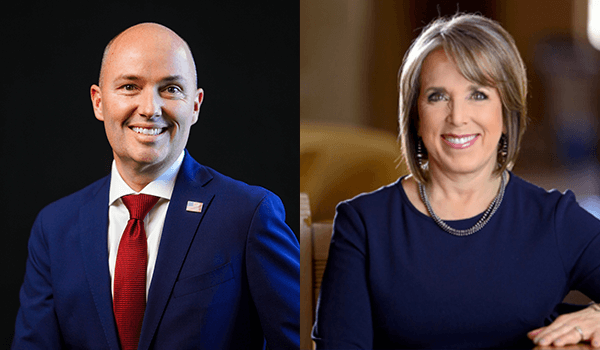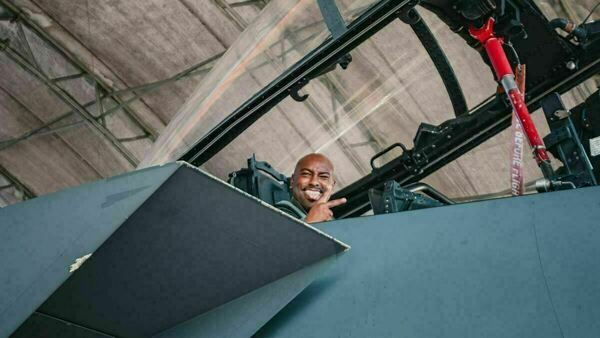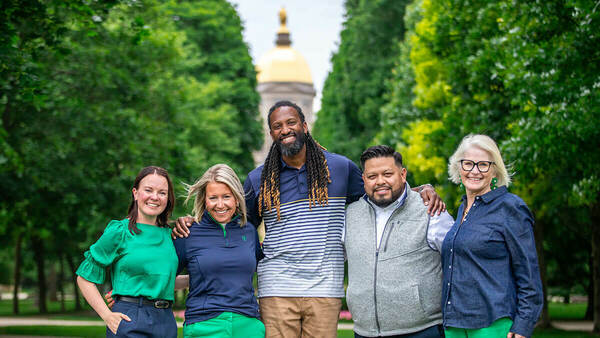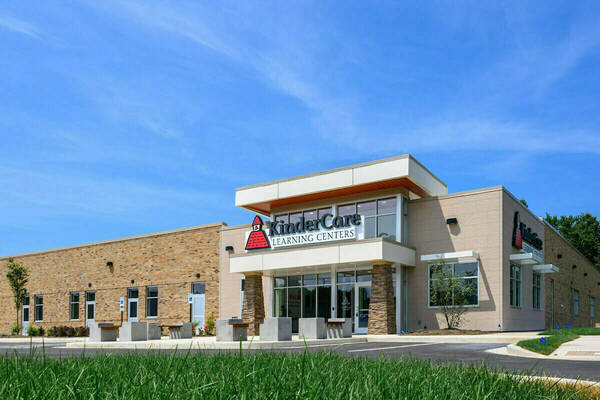Notre Dame Stadium becomes first outdoor university venue to move to Wi-Fi 6E standard
When nearly 80,000 fans gather for the college football playoff game between the University of Notre Dame and Indiana University on Dec. 20, they will enjoy an improved overall gameday experience, thanks to the implementation of Wi-Fi 6E standard power.
Notre Dame Stadium became the first outdoor college venue to implement Wi-Fi 6E this fall. To do so, the University of Notre Dame’s Office of Information Technology partnered with PIER Group to overhaul the stadium’s wireless network.
Wi-Fi 6E standard power taps into a new part of the Wi-Fi “highway” in the 6 GHz band, offering faster speeds, stronger connections and less congestion — even in packed venues.
For fans of the Fighting Irish, that means reliable streaming, no dead zones and a consistently strong signal no matter where they’re sitting.
While Wi-Fi 6E has been available since 2020, the Federal Communications Commission didn’t approve it for outdoor use until September — and on Sept. 28, Notre Dame Stadium was the first to implement it.
“Moving to 6E standard power isn’t just about creating a better experience for fans — it’s about improving connectivity for staff, faculty and students across the University,” said John Buysse, senior director of University Network and Telephony Services. “We’re thinking long-term.”
The goal of the upgrade is not only to enhance the current experience, but also to meet the needs of fans as technology evolves and devices such as smart glasses and other wearable tech become more popular.
“Imagine viewing a replay instantly in 3D or accessing interactive player stats in real-time from your seat,” Buysse said. “This advanced network makes things like real-time play tracking, augmented reality highlights and immersive experiences not just a dream, but an inevitable reality.”
The 6E Wi-Fi infrastructure is built to handle these data-heavy applications even in a sold-out stadium. Ticketless entry, in-seat concessions ordering and many other aspects of the fan experience are also supported by this network. The technological innovation will also benefit stadium staff through improved crowd management, optimized concessions and advanced security monitoring.
To preserve the aesthetics of the historic stadium, the network was designed to be as invisible as it is reliable, Buysse said. More than 1,100 access points were carefully installed across the stadium, seamlessly integrated into the architecture to maintain the venue’s iconic look.
For special events, such as concerts or movie nights, the team also introduced flexible, movable Wi-Fi setups that ensure coverage wherever needed — even on the field.
But the advancements at Notre Dame Stadium are just one piece of a larger puzzle, Buysse noted.
The University has embraced a Wireless First initiative, a three-pronged plan to install cutting-edge wireless technology all over campus. The 6E standard wireless network is future-proofed to accommodate the growing needs of the University, in sports as well as academics and research.
For Notre Dame’s Wireless Institute, the new network will enable advanced research on smart devices, artificial intelligence and augmented reality, supporting pioneering academic projects.
“With Wi-Fi 6E standard power now in place, Notre Dame is laying the foundation for advanced research and supporting academic and operational growth across campus,” Buysse said. “At Notre Dame, the things you don’t see — like a powerful wireless network — help make the things you do see extraordinary. At this point, if we can imagine it, we can find a way to do it.”
Contact: Carrie Gates, associate director of media relations, c.gates@nd.edu or 574-993-9220.
Latest ND News Wire
- Notre Dame Democracy Initiative hosts bipartisan conversation with Western state governorsTwo Western state governors known to work across the aisle on policy issues such as water, housing and energy will visit the University of Notre Dame for a fireside chat about how Western state pragmatism can serve as a model for the country to overcome polarization.
- MBA student and alumnus to take part in Fighting Irish flyoverNotre Dame MBA student Maximo Navarro takes flight for the Fighting Irish football season opener.
- Justice Amy Coney Barrett to deliver Center for Citizenship and Constitutional Government lectureAmy Coney Barrett, associate justice of the Supreme Court of the United States, will speak at the University of Notre Dame at 4 p.m. Sept. 12 in the Leighton Concert Hall of the DeBartolo Performing Arts Center.
- Forbes names Notre Dame top employer in Indiana for 2025Pictured from left: Nikki Buhrdorf, senior people strategy partner; Heather Hooley, senior people strategy partner; Jonathan Jones, learning and leadership development consultant; Julio Cruz Reyes, equal access and belonging program director; and Sue Mummert, EESO specialist. The University of Notre Dame has been named the top employer in Indiana by Forbes in its 2025 ranking of “America’s Best Employers by State.”
- New KinderCare facility to bring quality, convenient care to Notre Dame familiesKinderCare, in partnership with the University of Notre Dame, celebrated the opening of a new childcare center on the northern edge of campus with a ribbon cutting and reception on Tuesday, July 29.
- Statement from University President Rev. Robert A. Dowd, C.S.C., on the anniversary of the atomic bombing of HiroshimaToday, on the anniversary of the bombing of Hiroshima, Father Dowd offered remarks at the Elisabeth University of Music as a guest of its president, Yuji Kawano, and Bishop Alexis Mitsuru Shirahama of Hiroshima. Father Dowd focused on the role that universities can play in addressing the current nuclear predicament and the wider challenges of peace in today’s world.













